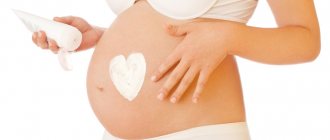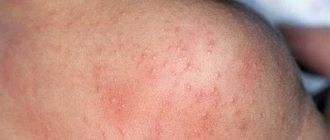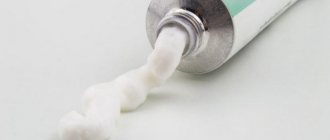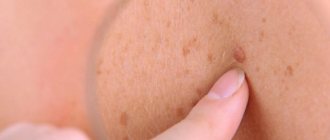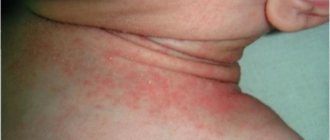The physiological functions of the skin include the work of the sweat glands, namely: the release of sweat followed by evaporation from the surface of the skin. This achieves a decrease in the temperature of the internal environment of the body.
In addition, sweating performs an excretory function: toxic metabolic products and some harmful substances dissolved in it are released with sweat. Night sweats are not uncommon. Excessive sweating is medically called hyperhidrosis.
So much sweat can be released that it soaks the sheets, duvet covers, and pillows. To get rid of this phenomenon, you need to identify the reasons - and their range is quite wide - underlying night sweats in a particular person.
Common reasons
Sweating during sleep can be caused by
- external reasons,
- physiological (normal) conditions,
- pathology of internal and endocrine organs.
When sweating is not associated with illness
External causes of sweating at night are the most commonplace: too warm a blanket, a feather bed, bed linen made of synthetic fabrics, night clothes that tightly fit the body of a sleeping person, as well as synthetic ones. Synthetic fibers are impermeable to air and moisture, the surface of the body overheats, and in response, sweating increases.
Hyperhidrosis can also be caused by an unventilated room that is too hot or too humid. A suitable temperature for night sleep would be 18–20°C. It is this cool atmosphere in the bedroom that promotes sound, healthy sleep. Air humidity should not exceed 70–75%, otherwise sweating will naturally increase.
Discomfort due to elevated temperature can occur not only due to external overheating, but also internal: the habit of eating too much at night, especially smoked, fatty foods, in combination with alcoholic drinks, as well as “night gluttons” give rise to overheating of the body from the inside due to increased digestion of eaten food.
Side effects of certain medications
Nocturnal hyperhidrosis is often a side effect of certain medications. Thus, medications prescribed to patients with depression and increased anxiety can cause increased sweating at night.
Like all side effects, hyperhidrosis does not occur in 100% of cases, but in approximately 14–21% of patients. The sweating caused by these medications is very profuse: the bed linen gets wet through. Of course, this situation causes inconvenience to patients and causes drug withdrawal.
Anti-inflammatory drugs and analgesics (painkillers) also have nocturnal hyperhidrosis in their list of side effects. It occurs more often when these medications are taken in high doses.
The presence of hyperhidrosis while taking the listed medications is a reason to seek medical advice.
Pathologies that cause night sweats
Increased sweating at night in the neck, back, or chest may be a sign of a health problem. A person sweats during the acute period of infectious diseases, when the temperature is high, there is a cough and the body becomes intoxicated.
Why do my hands go numb while sleeping?
The positive role of sweating is to eliminate toxins of viral and bacterial origin. Fever is accompanied not only by acute respiratory infections and sore throats, but also by so-called specific diseases (caused by one specific pathogen): HIV, tuberculosis infection.
These diseases last a long time and are accompanied by periodic increases in body temperature, chills, and weakness. They cause sweating and exacerbations of chronic pathologies of internal organs: bronchitis, pneumonia, rhinosinusitis, nephritis, pancreatitis, etc.
Severe pulmonary and heart failure also causes nocturnal hyperhidrosis. The same applies to pathologies of endocrine organs (diabetes, thyroid dysfunction), metabolic abnormalities (Cushing's disease), and allergic pathologies.
A group of systemic autoimmune connective tissue diseases, which include systemic lupus erythematosus, polyarthritis, rheumatoid arthritis, rheumatism; cancer, blood and lymph diseases are all causes of profuse night sweats. It happens if a person receives cytostatic drugs that are prescribed for tumors.
Deviations in the nervous (neuropathy) and mental sphere (acute stage of schizophrenia, psychosis, stress), toxic and drug addiction, alcoholism, obesity or exhaustion are also accompanied by night sweats. In principle, almost every disease can cause nocturnal hyperhidrosis.
The most dangerous diseases with increased sweating
Sometimes profuse sweating at night is a sign of serious illness.
Hyperthyroidism
An overactive thyroid gland is the most common cause of hyperhidrosis. In addition to night sweats, a hyperthyroid state is manifested by weight loss, increased body temperature, a person constantly feels tired, capillary vessels become brittle - bruises easily appear.
An overactive thyroid gland involves excessive production of thyroxine, the thyroid hormone. Thyroxine regulates metabolic processes - when there is a lot of this hormone, metabolism accelerates. All nutrients are burned as if in a furnace. Patients lose weight and sweat. They are also in a state of some excitement, suffer from insomnia, increased heart rate and ringing in the ears.
Hodgkin's lymphoma and non-Hodgkin's lymphomas
Hodgkin's lymphoma and non-Hodgkin's lymphomas are a serious pathology from the section of oncological diseases. The body's lymphatic system is affected, primarily the lymph nodes and lymphocytes. The latter are the most important part of the specific immune system.
One of the signs of lymphoma is nocturnal hyperhidrosis. And also inflamed and enlarged lymph nodes are observed in the armpits, in the groin area, and on the neck. It should be noted that this pathology of the lymphatic system is promising in terms of treatment, depending on the stage and type of the disease.
Hypoglycemia
Hypoglycemia is a low level of glucose (sugar) in the blood, typical for patients with diabetes, especially at night. At very low glucose levels, diabetics can fall into a hypoglycemic coma. Changes in blood sugar levels are accompanied by profuse sweating.
The body responds to a drop in blood glucose levels by increasing the production of the stress hormone adrenaline. Under its influence, glucose begins to leave the depot into the blood and the condition returns to normal. Depots (reserves) of glucose are located in the liver in the form of a complex carbohydrate - glycogen. The second effect of adrenaline is anxiety, fear and profuse sweating.
Gastric reflux or indigestion
Indigestion is well known to people who love to eat heavily at night. After a hearty dinner at midnight, the process of digestion is intensified. And it is accompanied by the formation of excess heat and sweating.
Reflux esophagitis may be accompanied by increased sweating
Gastroesophageal, or gastroesophageal, reflux is the reflux of gastric contents back into the esophagus. There is a burning sensation in the esophagus, sometimes pain, difficulty breathing, plus night sweats. If reflux occurs frequently, you should consult a gastroenterologist: there is a possibility of serious pathology.
Hot sleep or hot room? Or both?
Sure, it's nice to be in a consistently warm room during the winter months, but such comfort can actually cause poor sleep and night sweats. It's naturally colder at night than during the day, and our homes should be the same. Cooler temperatures send our bodies a signal that it's time to sleep. Light is the most powerful "time source" that tells the brain what time it is, and temperature is perhaps the second most important.
Here we say "possibly the latter" because some authors argue that temperature is even more important than light. Researchers have found that in cultures without technology, people wake up in the morning with temperatures rising before the sun rises. On very hot nights we can't sleep no matter the light source, so we can say they have some valid points.
Room and bed
Let's get back to the most desired temperature - experts recommend 64°F. This doesn't mean you should set that room temperature to that specific number (we all have different bodies and different needs), but it should serve as an ideal number so you can know when and for how long you disconnected. Much higher and much lower temperatures can cause you to wake up frequently in discomfort and have poor sleep overall (barely any time in deep sleep).
Once you check the ambient temperature, focus on your bed. Do you have breathable pajamas and bedding? Are you using too many blankets? What mattresses and blankets do you use? Memory foam mattresses can retain heat and make you very hot (same with pillows). Some blankets are specifically designed to keep you warm, while others have a cooling effect.
If you prefer a warmer room temperature or are naturally hot, try going to bed without pajamas.
Night sweats in men
Nocturnal hyperhidrosis can be caused by specific, “male” reasons. For example, an imbalance of sex hormones. When the production of the hormone testosterone decreases with age, the effects of estrogens (female hormones) begin to manifest themselves in the male body.
In principle, they are always present in the male body, but their content is small compared to testosterone. But when its production is suppressed, estrogens begin to predominate and have their effect. Fever occurs in fits and starts, blood rushes to different parts of the body, and profuse sweating appears at night.
As a result of hormonal changes, external changes occur in the male body - hair turns gray and falls out, muscle mass is lost and fat accumulates, and one or another chronic pathology develops. All this is a transition period from mature age to old age (approximately 46–50 years).
Most men are very worried about this, to the point of developing fears, depression, and sleep disorders. The latter can be expressed in the form of painful nightmares, accompanied by heavy sweating.
Botox therapy
Initially, botulinum toxins were created to eliminate the consequences of strokes and neuritis in patients. Then botulinum toxin migrated to cosmetology: due to the relaxing effect it has on muscle tissue, botulinum toxin began to be used in the fight against wrinkles “from the inside.”
It should also be noted that the botulinum toxin injection procedure is safe - they do not affect the lymph nodes, blood vessels, muscles, but only combat the problem of increased sweating. However, for your own safety, you need to remember that the doctor must be a qualified specialist, and the clinic must have permission to work with this type of drug, issued by the manufacturer.
Contrary to popular belief, drugs from different companies do not differ from each other in terms of validity. More precisely, an adequate comparison of drugs is impossible, since they all have different concentrations of the substance and dosage methods.
There are no clear instructions on the dosage of the drug - the doctor relies on his own experience and developed standards. The procedure is slightly painful, so it is possible to use local anesthetics, for example, lidocaine cream. The duration of the procedure does not exceed 30 minutes.
First, the Minor test or iodine-starch test is performed, which allows identifying areas of the most increased sweating.
Causes of night sweats in women
Women suffer from night sweats even more often than men. In the fairer sex, nocturnal hyperhidrosis occurs during pregnancy, PMS, and menopause.
Pregnancy
The hormonal system begins to undergo restructuring from the first months of gestation. The restructuring leads to a temporary imbalance in the functioning of the nervous system, which is also responsible for the secretion of sweat. For this reason, a pregnant woman experiences increased sweating of the palms and feet.
From the second trimester, the load on the cardiovascular system of the expectant mother increases. More blood now passes through the vessels, metabolism increases. As a result, more sweat is produced. Sweating is observed over the entire surface of the body. This may bother a pregnant woman at night.
As the due date approaches, a woman’s body weight increases sharply, a lot of fluid accumulates in the body, and edema may appear. Excess fluid is eliminated not only through the kidneys, but also through increased work of the sweat glands, including at night.
Premenstrual syndrome
This is the name given to the state of the female body approximately a week before the onset of the next menstruation. At this time, hormonal imbalance may occur, externally expressed as emotional instability, pain, and night sweats.
Climax
The transition period between fertility and menopause. The onset of menopause is accompanied by a restructuring of the entire female endocrine system. The production of female sex hormones is greatly reduced. The result is “hot flashes”, a feeling of heat, in a woman:
- my head is spinning
- a lot of sweat is produced
- painful sensations appear.
Female sweating is especially painful at night, even causing sleep disturbance.
Characteristic diseases
Excessive sweating of the scalp may be a symptom of the disease. This condition is typical for:
- obesity;
- rickets in children and hypovitaminosis D in adults;
- diabetes mellitus;
- hypothyroidism;
- hypertension;
- ARVI;
- menopause;
- heart failure;
- snoring (obstructive sleep apnea syndrome).
Therapy for hyperhidrosis in the presence of a serious disease is prescribed by the doctor who treats the underlying pathology. But it’s better to start by contacting a therapist. He will refer you to a specialist of the appropriate profile. This could be a cardiologist, neurologist, gynecologist, endocrinologist, nutritionist, otorhinolaryngologist.
Night sweats during sleep in children
Until a child reaches the age of 6–7 years, thermoregulatory processes in his body are not yet fully formed. This causes significant fluctuations in body temperature and, consequently, sweat production during periods of predominance of the function of any part of the nervous system. Thus, at night the autonomic nervous system dominates - young children may sweat profusely.
The younger the child, the more he sweats at night
Prematurity
When a baby is born ahead of schedule (40 weeks), a huge load falls on his body, since he is not ready to be in the external environment. The efforts of the child’s body to survive are accompanied by very large expenditures of energy and fluid, and as a result, profuse sweating.
Teething
At this moment, the child’s body undergoes a test of strength through inflammation and pain. As teething occurs, the temperature rises, especially towards night. When the fever begins to subside, the child sweats profusely.
Hypovitaminosis D
Combined with the development of rickets. The first sign of rickets is night sweating on the child’s head and neck. Sweat has an unpleasant and characteristic smell.
Hyperactivity syndrome
This is a state of some excitement of the nervous system, its being in constant tone. Hyperactive children are overly active, emotional, and cannot concentrate or engage in quiet games. Often diagnosed with brain function disorders.
Infectious and cold pathology
Typically, any infectious disease attacks the body at night, and it often begins with the patient starting to sweat.
Withdrawal syndrome
A pathological condition caused by a sudden cessation of alcohol consumption by people suffering from alcoholism. As a consequence of intoxication, dysfunction of organs and systems is observed. During withdrawal, a person becomes covered in sticky sweat, the characteristic feature of which is a sharp, unpleasant odor associated with the release of toxic substances through the skin.
The manifestations of hyperhidrosis are so pronounced that the secreted fluid often flows down in streams. The patient's linen and belongings literally get wet through and through. There is a sharp pallor of the skin, the patient experiences auditory and visual hallucinations. This condition is dangerous not only for the person in withdrawal, but also for others. Requires calling a specialized ambulance team.
Why do you break into a cold sweat at night?
I broke out in a cold sweat - the reasons for this can be serious, and someone sweats in their sleep after stress received the day before. Pathology that can leave you in a cold sweat: pressure surges, ARVI, HIV/AIDS, lymphomas, tuberculosis infection, anemia.
Sweating itself is caused by an increase in the level of adrenaline in the blood. Sweat evaporates on the surface of the skin, the limbs cool, blood vessels constrict, and the person suddenly wakes up with a feeling of anxiety. The causes of cold sweats at night in men and women are discussed below. Nocturnal hyperhidrosis in men is caused by the following conditions: low blood pressure, significant bleeding, vascular and cardiac dysfunction.
Excessive alcohol consumption
Alcoholic drinks cause severe sweating in men at night, and especially during a hangover. Even in the absence of malicious use, ethanol causes an imbalance in heat production in the body - a person feels either feverish with profuse sweating or chills.
Headache
The body of men who periodically suffer from migraine attacks is prone to frequent release of significant amounts of the stress hormone adrenaline into the bloodstream. Adrenaline is the reason why increased sweating occurs. The causes of migraines lie in a wide variety of pathologies - from a common cold to systemic severe diseases.
Idiopathic hyperhidrosis
The word "idiopathic" means "uncaused", "with an unknown cause." Sweat production is increased, but the reasons for this have not been found. Idiopathic sweating usually occurs after stress, conflicts at work and in family life.
Hyperhidrosis itself can become a cause for concern: cold and unpleasantly damp palms can create problems for a person in social life.
Hormonal imbalances
Accompanied by profuse sweating, characteristic of adolescence and sexual dysfunction in men. The problem of male sweating, no matter what causes it, should not remain unresolved. If this phenomenon persists for a long time, you should consult a doctor.
Diagnostics
A general practitioner or specialist therapist will determine the cause of night sweats in men. During the examination, the functioning of internal organs is assessed, and the most common diseases that occur with nocturnal hyperhidrosis are excluded. The diagnostic search scheme includes instrumental imaging methods and laboratory tests. The most informative ones are:
- Blood test
. First of all, general and biochemical analyzes are performed to identify signs of the inflammatory process and the presence of endogenous intoxication. Be sure to determine the levels of testosterone, thyroid hormones, and adrenal cortex. To exclude diabetes mellitus, fasting blood sugar levels and a glucose tolerance test are examined. - Bacteriological tests
. To confirm the tuberculous etiology of night sweats in men, repeated sputum sampling is recommended to detect Koch's bacillus. A skin test with tuberculin is used as a screening method. They do standard tests for markers of viral hepatitis, HIV infection, and take a smear from the urethra for bacterioscopy. - Instrumental visualization
. To exclude inflammatory processes or large tumors, a chest x-ray in two projections is required. Ultrasound of peripheral endocrine organs - adrenal glands, thyroid gland, testicles - is indicated. To clarify the causes of night sweats in men, scintigraphy of the thyroid gland and CT scan of the abdominal cavity are used. - Neurological examination
. During the examination, the symmetry of reflexes and the coordination of the parasympathetic and sympathetic nervous systems are assessed. Patients in an agitated and aggressive state require psychiatric evaluation to rule out severe withdrawal symptoms. Additionally, CT or MRI of the brain is prescribed.
Night sweats require a comprehensive examination
What to do?
First of all, it is necessary to find out the cause of this phenomenon. If sweating is a one-time occurrence, you can ignore it. If hyperhidrosis has become permanent, you should immediately consult a dermatologist or therapist.
Doctors almost never prescribe medications to relieve night sweats. It is recommended to normalize your sleep schedule, change your diet, exercise and give up bad habits. Sleep hygiene is important: the bedroom must be ventilated, the air temperature should not exceed 18°C.
Warm baths with infusion of chamomile flowers or eucalyptus, with the addition of essential oils, help well. Nightwear should not be too tight or uncomfortable. Natural fabrics - linen or cotton - are best suited. You should not have a heavy dinner or drink alcohol at night. It is useful to drink one glass of natural juice.
